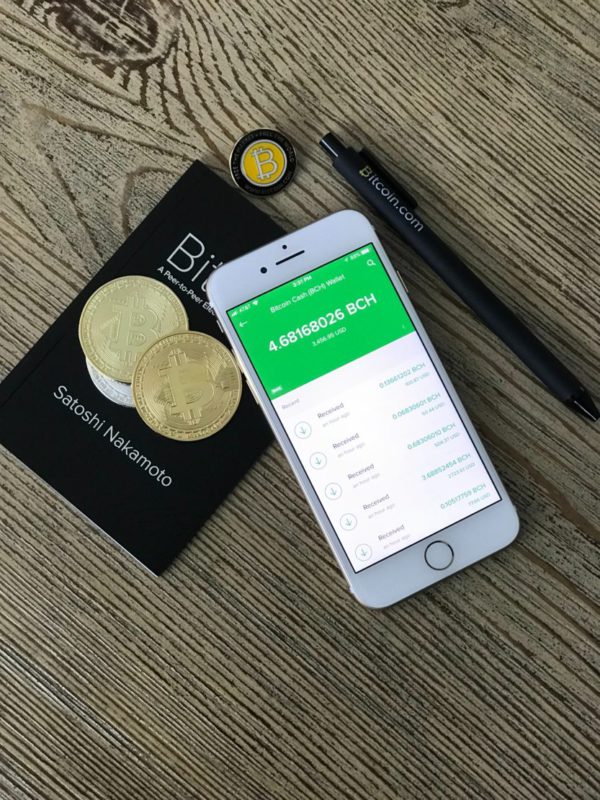In 2022, you might owe crypto taxes on these unexpected items.
If you were one of the millions of people who purchased cryptocurrency for the first time in 2021, you might be surprised when it comes time to file your taxes.
The Internal Revenue Service (IRS) is fully aware of cryptocurrency, which began as a decentralized underground economy. Now that the roughly $2 trillion sectors have gone mainstream enough to fill coveted Super Bowl commercial space, the IRS is well aware.
For tax reasons, the IRS regards bitcoin as intangible property, which means that any profits you generate from selling it are subject to capital gains taxes. This is true whether you bought bitcoin or altcoins on a crypto exchange like Coinbase or just bought and utilized cryptocurrencies through an app like Venmo or PayPal.
This year, it’s at the top of tax experts’ minds: TurboTax now asks if you traded cryptocurrency last year as you start your 2021 tax return. (This is made more accessible if you connect your wallet to a cryptocurrency portfolio tracking tool that can compute your capital gains and losses in seconds.) and if you file your taxes on paper with the help of a CPA, you should at the very least be prepared to tell them about your crypto revenues in 2021.
But what does the IRS define “profits” in the context of cryptocurrency, and what constitutes a taxable event? Let’s find out how the IRS categorizes the circumstances below.
In 2022, be on the lookout for unexpected crypto tax bills.
Have you been given an NFT, purchased everyday items with cryptocurrency, or earned enough cryptocurrency to put you in a new tax bracket.
Airdrops and bitcoin gifts
Last year, cryptocurrency was a popular gift. According to a BlockFi poll, one out of every ten persons offered cryptocurrency as a holiday present.
NFTs
Everyone today has heard of non-fungible tokens (NFTs), but few people understand how they are taxed.
Although the IRS has yet to issue formal guidance on NFTs, it’s worth mentioning that during a fraud investigation and tax crackdown in the United Kingdom, British tax authorities recently made the country’s first seizure of NFTs. Of course, Americans can’t look to other countries for specific tax advice, but it’s becoming apparent by the day that customers shouldn’t try to avoid paying taxes on NFT purchases and trades.
Tokens for gaming rewards
Play-to-earn video games that reward players with decentralized finance (DeFi) tokens that can hold real-world value and be exchanged for either crypto or fiat (government) currencies are becoming increasingly prevalent worldwide.
Passing through a higher tax bracket
Many people made money on cryptocurrency last year. As a result, some people have exceeded the $200,000 adjusted gross income (AGI) threshold for the first time — and may face more significant taxes than usual.
Buying beverage with crypto wallet
Buying coffee and other ordinary items with cryptocurrency
Purchasing goods and services using cryptocurrency, even minor expenditures like buying a cup of coffee.
Cryptocurrency gift cards
Popular cryptocurrency debit and credit cards, such as the Gemini Mastercard and the BlockFi bitcoin rewards card, have made it simple to purchase products at stores with cryptocurrency. Users can also get crypto benefits, such as 3% back in bitcoin when they spend.
Stay informed with daily updates from Blockchain Magazine on Google News. Click here to follow us and mark as favorite: [Blockchain Magazine on Google News].
Get Blockchain Insights In Inbox
Stay ahead of the curve with expert analysis and market updates.
latest from tech
Disclaimer: Any post shared by a third-party agency are sponsored and Blockchain Magazine has no views on any such posts. The views and opinions expressed in this post are those of the clients and do not necessarily reflect the official policy or position of Blockchain Magazine. The information provided in this post is for informational purposes only and should not be considered as financial, investment, or professional advice. Blockchain Magazine does not endorse or promote any specific products, services, or companies mentioned in this posts. Readers are encouraged to conduct their own research and consult with a qualified professional before making any financial decisions. The featured image used is just a creative depiction of the title and it does not intend to hurt sentiments of any person or institution. If it hurts anyone sentiments, please do not hesitate to reach out to Blockchain Magazine.

 Bitcoin
Bitcoin  Ethereum
Ethereum  XRP
XRP  Tether
Tether  Solana
Solana  Dogecoin
Dogecoin  USDC
USDC  Cardano
Cardano  Lido Staked Ether
Lido Staked Ether  TRON
TRON  Chainlink
Chainlink  Avalanche
Avalanche  Wrapped stETH
Wrapped stETH  Wrapped Bitcoin
Wrapped Bitcoin  Stellar
Stellar  Sui
Sui  Hedera
Hedera  Toncoin
Toncoin  Shiba Inu
Shiba Inu  WETH
WETH  Polkadot
Polkadot  Litecoin
Litecoin  LEO Token
LEO Token  Bitget Token
Bitget Token  Bitcoin Cash
Bitcoin Cash  Hyperliquid
Hyperliquid  Uniswap
Uniswap  Wrapped eETH
Wrapped eETH  USDS
USDS  Official Trump
Official Trump  Pepe
Pepe  NEAR Protocol
NEAR Protocol  Ethena USDe
Ethena USDe  Aave
Aave  Aptos
Aptos  Ondo
Ondo  Internet Computer
Internet Computer  Ethereum Classic
Ethereum Classic  WhiteBIT Coin
WhiteBIT Coin  Monero
Monero  Mantle
Mantle  Cronos
Cronos  Jupiter
Jupiter  POL (ex-MATIC)
POL (ex-MATIC)  Render
Render  Dai
Dai  MANTRA
MANTRA  Layer One X
Layer One X 




